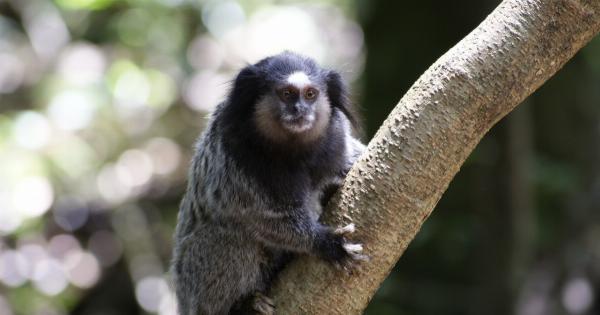Portugal has recently been facing a dramatic surge in monkey outbreaks across the country. These incidents have caused concerns among both locals and tourists, leading to increased attention from authorities and the scientific community.
The monkey outbreaks have been primarily observed in rural areas, particularly in the southern regions of Algarve and Alentejo, but have also made their way to cities like Lisbon and Porto. This unexpected phenomenon has raised questions about the causes behind these outbreaks and the potential consequences for Portugal’s environment and public health.
The rise of monkey populations in Portugal
Historically, monkeys have not been native to Portugal, so the sudden increase in their presence has been perplexing. The main species involved in these outbreaks is the Barbary macaque (Macaca sylvanus), which is native to North Africa.
It is believed that these monkeys were brought to Portugal illegally as pets or for the purpose of entertainment in circuses and then escaped or were released into the wild.
The first sightings of monkeys in Portugal date back to the early 2000s, but their populations remained relatively small and localized.
However, in recent years, there has been a noticeable spike in their numbers, resulting in larger and more frequent outbreaks. It is estimated that the current monkey population in Portugal ranges from 2,000 to 5,000 individuals, with the majority concentrated in the southern parts of the country.
Potential impacts on ecosystems
The presence of monkey populations in Portugal raises concerns about their potential impact on native flora and fauna. These primates are known to have diverse diets, which include fruits, leaves, insects, and small vertebrates.
Their foraging behavior can disrupt local ecosystems by consuming native plant species, spreading seeds from non-native plants, and preying on smaller animals. This can lead to imbalances in the ecological dynamics and threaten the survival of certain species in the affected areas.
Additionally, monkeys are highly adaptable and intelligent creatures, which can allow them to outcompete native species for resources.
They may exploit available food sources more efficiently or take advantage of human-provided resources such as garbage bins. This can lead to a decline in population numbers of other animals that depend on the same resources, ultimately affecting the overall biodiversity of the region.
Concerns for public health and safety
The increase in monkey populations also raises concerns for public health and safety. While monkeys are generally wary of humans, they can become more adventurous and bold as their populations grow.
There have been reports of monkeys entering residential areas, raiding gardens, and even stealing food from unsuspecting individuals. Such encounters can result in conflicts and potential risks, as monkeys may exhibit aggressive behaviors when they feel threatened or cornered.
Moreover, monkeys are potential carriers of various diseases that can be transmitted to humans. For example, they may carry zoonotic diseases such as tuberculosis, herpes B virus, and simian immunodeficiency virus.
Although the risk of transmission to humans is relatively low, it is still a significant concern, particularly for individuals with weakened immune systems or those who come into direct contact with monkey feces or bodily fluids.
Efforts to manage the monkey outbreaks
Recognizing the potential environmental and public health risks associated with the surge in monkey outbreaks, Portuguese authorities have taken several measures to manage the situation.
These efforts focus on addressing both the root causes and the immediate impacts of the outbreaks.
One of the key strategies is the establishment of dedicated task forces comprised of wildlife experts, conservationists, and local authorities.
These task forces work together to monitor the monkey populations, assess their behavior, and implement necessary actions to mitigate their impact on local ecosystems and human populations. They also collaborate with international organizations and research institutions to gain valuable insights and expertise in managing similar situations.
Another approach is public awareness and education campaigns. These initiatives aim to inform the public about the potential risks associated with interacting with wild monkeys and to emphasize the importance of avoiding direct contact with them.
It is crucial for individuals to understand that feeding or approaching monkeys can disrupt their natural behaviors and increase the likelihood of conflicts or disease transmission.
The role of scientific research
Scientific research plays a vital role in understanding the surge in monkey outbreaks and finding long-term solutions. Researchers are conducting studies to assess the ecological impact of monkeys on native flora and fauna.
They are also investigating the behavioral patterns of monkeys, their food preferences, and potential management strategies that can minimize their impact on the environment.
Additionally, scientists are collaborating with veterinary experts to study the prevalence of zoonotic diseases in monkey populations and determine the risk of transmission to humans.
This knowledge is crucial for implementing appropriate preventive measures and ensuring the safety of both local communities and tourists.
The importance of responsible pet ownership
The surge in monkey outbreaks in Portugal serves as a reminder of the importance of responsible pet ownership.
It is essential to discourage the illegal trade of exotic animals and educate individuals about the potential consequences of keeping them as pets. Strict regulations and penalties should be imposed to deter the illegal import and release of monkeys and other exotic animals.
Furthermore, alternative entertainment options should be promoted to discourage the use of animals in circuses or other forms of entertainment that exploit wild animals.
Emphasizing the importance of respecting the natural habitats of animals can help prevent future outbreaks and protect both wildlife and human populations.
The future of monkey outbreaks in Portugal
The future of monkey outbreaks in Portugal remains uncertain. While the surge in their populations poses challenges and concerns, it also presents an opportunity for proactive conservation and adaptive management.
By addressing the root causes, enforcing regulations, and implementing effective management strategies, it is possible to mitigate the negative impacts and maintain a balance between humans and wildlife.
However, this will require ongoing collaboration between various stakeholders, including local communities, government agencies, conservation organizations, and scientific researchers.
Only through a collective effort can Portugal successfully overcome the challenges posed by monkey outbreaks and safeguard the environment, biodiversity, and public health for generations to come.































